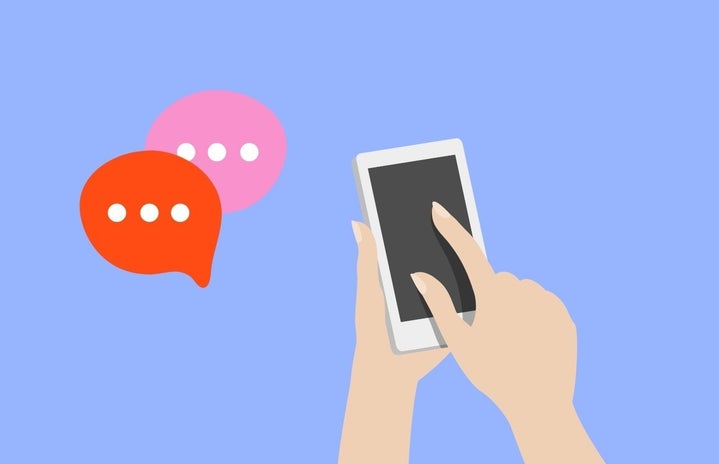Hinge released their D.A.T.E (Data, Advice, Trends, and Expertise) report on Gen Z on Feb. 6. Here’s what you need to know:
What is the D.A.T.E. Report?
Hinge’s report on Gen Z goes into the thoughts and attitudes about love, dating and relationships. Hinge surveyed over 15,000 of their users, consulted their team of dating and relationship experts and received testimonials. The report was created by Hinge Labs, a group of experts and Ph.D. researchers at Hinge. The report also includes advice on how to conquer some of Gen Z’s biggest romantic anxieties.
Gen Z’s View On Love
According to Hinge, 90% of those surveyed want to find love. Keep in mind that these are dating app users, but this result departs from the belief that young people are solely invested in hookup culture. In fact, Hinge reported that Gen Z is 30% more likely to believe there’s one soulmate for each person than millennials. Gen Z additionally is “39% more likely to consider themselves romantically idealistic,” Hinge says.
Fear of Rejection
We can all relate to having a fear of rejection. Hinge has proof. They reported that 56% of Gen Z Hinge users allowed fear of rejection to hold them back from relationship opportunities. The D.A.T.E. report says, “They’re 10% more likely than millennial daters to say they’ve missed the chance to be with someone because of [fear of rejection].” COVID-19 also had its impacts on Gen Z, causing daters to be less confident and more nervous than millennials. “44% of Gen Z Hinge daters have little-to-no dating experience,” Hinge says.
Logan Ury, Hinge’s Director of Relationship Science, is a behavioral scientist, author and dating coach. She suggests taking risks and opening yourself up to conversation –and rejection– with potential romantic prospects.
“If you hide from rejection, you’re also hiding from your dreams,” says Ury.
Being Confident In Your Cringey-ness
Moe Ari Brown, licensed Marriage and Family Therapist and Hinge’s Love and Connection Expert, terms a concept called “cringe mode.” Cringe mode is the feeling of awkwardness and embarrassment that comes with making mistakes and the potential for rejection.
“The trick is acknowledging the feeling and accepting that you don’t need to be rid of it to date successfully,” says Brown. He suggests that we “embrace cringe mode” in our relationships. “I encourage you to shift your focus away from the fear and focus on the potential rewards like making a powerful connection,” Brown added.
“DBL” (Digital Body Language)
We all know how important body language is to conversation, but what about talking online? Hinge references a concept called Digital Body Language (DBL). They define it as a “type of communication in which the style of digital interaction is used to express or convey information.” It consists of all of your messaging staples: message length, texting style, emojis and even the time it takes to respond.
“77% of Hinge daters say DBL reveals a lot about a match’s interest,” says Hinge. DBL matters because of how often we are meeting new people online. If you’re getting negative or mixed signals from a potential partner, you’re less likely to pursue that relationship. However, it’s important not to read too much into DBL. According to Hinge, 56% of their users have overanalyzed someone else’s DBL.
What Are We?
Not sure where you and your situationship stand? Hinge has advice on that too. The “what are we” conversation is essential to setting the standards and boundaries of your new relationship. Hinge says that “73% of Hinge daters believe that asking someone to be their partner is a must for establishing exclusivity.”
Ury has a six-step guide to establishing where you stand in a relationship:
- “If someone doesn’t want to be with you, it’s better to know now.”
- “There’s no perfect time to initiate it.”
- “Have the conversation in person.”
- “Clearly communicate what you want to know.”
- “Understand that you may not receive the response you desire.”
- “Keep in mind that how you handle the convo will impact your future relationship.”
Brown also suggests tailoring the conversation to the type of relationship you want. Relationships aren’t a one-size-fits-all, so it’s important to figure out what you’re looking for with a partner.
In all, Hinge’s D.A.T.E. report has the insights and advice Gen Z needs to approach your next relationship. If you’re looking for love or are afraid of rejection, you’re not alone, but with the help of Hinge’s experts you can approach those situations with confidence.

